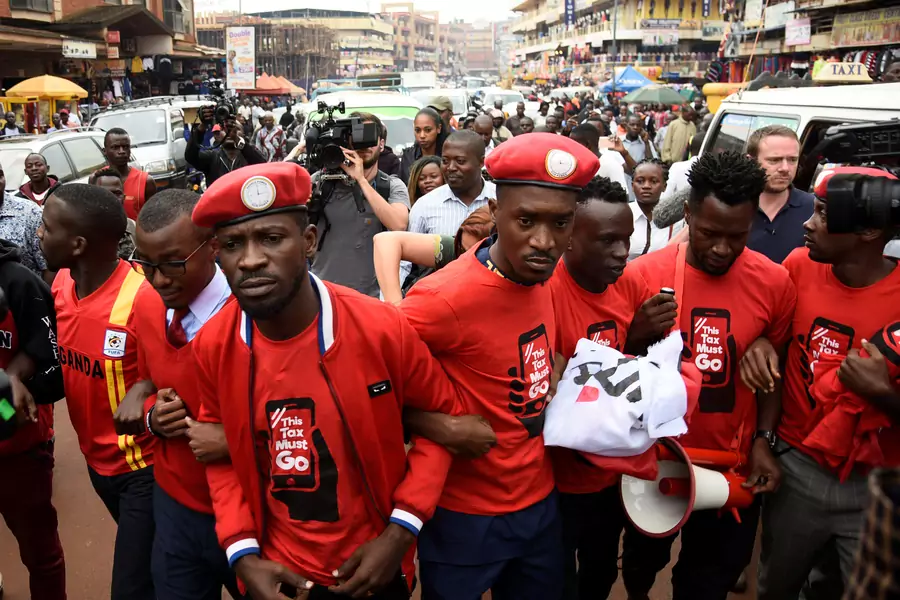Uganda's Bobi Wine Brings Attention to Museveni's Repressive Politics

Recent events have shone an international spotlight on Uganda, where the government’s treatment of parliamentarian and musician Robert Kyagulanyi, better known by his stage name, Bobi Wine, is bringing new attention to the repressive nature of Ugandan politics, and new energy to those resisting the status quo. He recently arrived in the United States to seek medical treatment for injuries allegedly sustained while in government custody.
A by-election held on August 15 in volatile northwestern Uganda to replace a member of parliament who had been assassinated in June triggered the current crisis. Campaigning had been contentious, and Ugandan authorities deployed a heavy security presence to the area in the immediate preelection period. President Museveni traveled to the region to support the ruling party candidate, while Kyagulanyi and others were in the area to stump for their preferred choices. On August 13, rock-throwing demonstrators triggered a violent reaction from security forces, leading to beatings, the fatal shooting of Kyagulanyi’s driver, and the arrest of Kyagulanyi and other opposition figures.
More on:
Thus far, the case does not inspire great confidence in the Ugandan judicial system. First, Kyagulanyi and others were charged by a military tribunal with illegal possession of weapons. Their court appearances have been harrowing, as many appear to have been mistreated in detention, a charge the government denies. When the military charges were dropped, they were immediately replaced by charges of treason in civilian court. Within Uganda, demonstrations and riots erupted in protest, and journalists covering them have been beaten along with participants. While Kyagulanyi and others were granted bail on August 27, they remain in legal jeopardy.
Kyagulanyi’s treatment once again exposes the Ugandan government’s intolerance of dissent and its tendency to conflate political opposition and challenges to the status quo with threats to state security. Of course, this is not a new development; opposition politicians in Uganda have routinely been arrested on highly questionable charges, as the many legal trials of opposition leader Kizza Besigye demonstrate.
But two factors make the Bobi Wine crisis different from what Uganda has seen before. First, Kyagulanyi’s relatively youthful thirty-six-years of age make for a pointed contrast with Museveni, who, at seventy-four, has been leading Uganda since Kyagulanyi was about four. The frustrations of Uganda’s tremendously youthful population are easily channeled into anger over the persecution of the young MP. Moreover, his status as a pop culture influencer and artist brings the realities of Uganda’s authoritarian politics to a much wider and different domestic and international constituency than those who have traditionally followed Ugandan politics. He has triggered interest and activism from other musicians and creative professionals beyond Uganda’s borders, not least through the #freebobiwine social media campaign.
In Uganda, new influencers are emerging and inserting themselves into a previously predictable political dynamic. President Museveni seems to be betting he can maintain control until oil revenues come online and make it easier for the government to deliver more to its frustrated young people. Whether or not he is right bears close watching.
More on:
 Online Store
Online Store